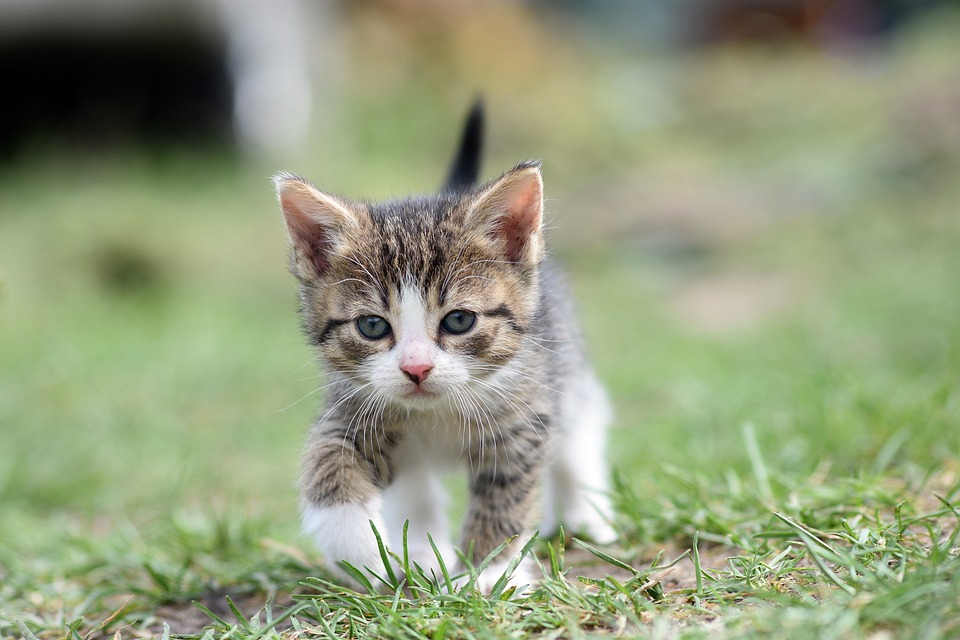Cats, like humans, can experience respiratory issues that may lead to coughing. While an occasional cough may not be a cause for concern, persistent or severe coughing can indicate an underlying health problem. In this article, we will explore common causes of coughing in cats, how to identify respiratory issues, and effective management strategies. Read on to ensure your feline friend stays healthy and happy.
Common Causes of Coughing in Cats
1. Feline Upper Respiratory Infections (URI)
Feline upper respiratory infections are common in cats, especially those in crowded or stressful environments. Symptoms of respiratory infections include coughing, sneezing, nasal and ocular discharge, and general discomfort. URIs can lead to coughing due to inflammation and irritation of the respiratory tract.
2. Asthma in Cats
Feline asthma is a chronic respiratory condition characterized by inflammation and constriction of the airways. Cats with asthma may experience coughing, wheezing, and difficulty breathing. Asthma attacks can be triggered by allergens, stress, or physical exertion.
3. Heartworm Disease
Heartworm disease, primarily transmitted through mosquito bites, can also affect cats. While dogs are more commonly affected, cats can develop heartworm infections that lead to respiratory symptoms, including coughing. Prevention and treatment options for heartworm disease are available, and regular preventive measures are recommended.
4. Allergies and Irritants
Cats can develop allergies to various substances, including pollen, dust mites, and certain foods. Allergies can manifest as respiratory symptoms, such as coughing, sneezing, and wheezing. Identifying the allergens and minimizing exposure can help manage coughing caused by allergies.
5. Foreign Objects and Respiratory Blockages
Cats are curious creatures and may accidentally inhale or swallow foreign objects, leading to respiratory blockages. Coughing can be a sign that a foreign object is obstructing the airways. Immediate action should be taken to remove the object and ensure the cat’s airway is clear.
Identifying Respiratory Issues in Cats
1. Observing Coughing Patterns
Differentiating coughs from other sounds, such as hairballs or gagging, can help determine if the coughing is respiratory-related. Pay attention to the frequency and severity of coughing episodes, as well as any triggers that may be causing them. Documenting these observations will assist your veterinarian in making an accurate diagnosis.
2. Additional Symptoms to Watch for
In addition to coughing, other respiratory symptoms to watch for include sneezing, wheezing, difficulty breathing, nasal or ocular discharge, and loss of appetite or lethargy. These symptoms can provide valuable information about the underlying cause of the coughing.
3. When to Seek Veterinary Care
If your cat’s coughing persists, worsens, or is accompanied by other concerning symptoms, it is important to seek veterinary care. Delaying attention can put your cat at risk for complications and may hinder prompt treatment. A veterinarian will be able to provide an accurate diagnosis and recommend appropriate treatment options.
Managing Respiratory Issues in Cats
1. Veterinary Diagnosis and Treatment
Professional diagnosis is crucial for effective management of respiratory issues in cats. A veterinarian may perform diagnostic tests, such as blood work, X-rays, or respiratory swabs, to determine the underlying cause of the coughing. Treatment options will vary depending on the specific diagnosis.
2. Medication and Home Care
If medication is prescribed, it is important to administer it as directed by your veterinarian. Creating a calm and clean environment can help alleviate respiratory symptoms. Providing plenty of fresh water and a balanced diet can also support your cat’s overall respiratory health.
3. Preventive Measures
Vaccinations and regular veterinary check-ups are essential for maintaining your cat’s respiratory health. Heartworm prevention strategies, including regular medication and minimizing exposure to mosquitoes, are important for preventing heartworm disease. Minimizing exposure to allergens, such as keeping the house clean and using air purifiers, can help manage coughing caused by allergies.
FAQs: Frequently Asked Questions
1. What should I do if my cat has a persistent cough?
If your cat has a persistent cough, it is important to seek veterinary care. A veterinarian will be able to determine the cause of the coughing and recommend appropriate treatment options.
2. Can cats catch colds from humans?
While cats cannot catch colds from humans, they can develop respiratory infections from other cats or viral pathogens specific to felines.
3. Are there any home remedies to alleviate coughing in cats?
It is best to consult a veterinarian for appropriate treatment options. Home remedies may not address the underlying cause of the coughing and could potentially worsen the condition.
4. How can I prevent my cat from inhaling foreign objects?
Keeping small objects out of your cat’s reach and providing appropriate toys can help prevent them from inhaling foreign objects. Regularly inspecting the environment for potential hazards is also recommended.
5. Is it necessary to take my cat to the vet for every coughing episode?
While an occasional cough may not be a cause for concern, persistent or severe coughing should be evaluated by a veterinarian. They will be able to determine if further investigation or treatment is necessary.
Conclusion
Coughing in cats should never be ignored, as it can indicate various respiratory issues that require prompt attention. By familiarizing yourself with the common causes, symptoms, and management strategies, you can provide your feline companion with the care they need. Remember to consult a veterinarian for an accurate diagnosis and tailored treatment options. With proper care and preventive measures, you can help your cat breathe easier and maintain optimal health.








